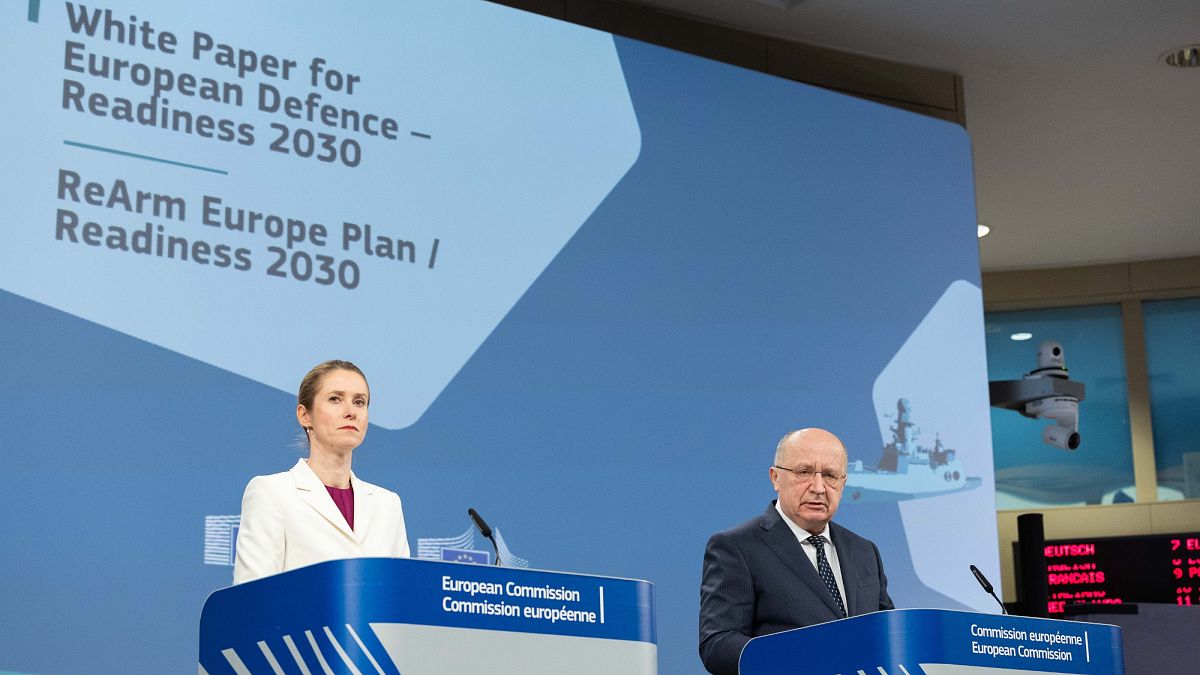With the European Commission due to propose the EU’s next seven-year, trillion-euro budget in the summer, security analysts are calling for a focus on green energy alongside increased military spending.
Bolstering the resilience of Europe’s energy complex is as important as pouring money into armaments and troops, a group of political analysts warns in a letter to finance ministers as negotiations on the EU’s next trillion-euro budget ramp up.
“Long-term stability relies not only on military strength but also on reducing our dependency on volatile energy supplies,” runs the letter signed by energy and security analysts from six leading think tanks including Carnegie Europe and the Jacques Delors Institute.
They call on governments and EU top brass including budget commissioner Piotr Serafin to adopt a “holistic approach” to security during talks on the EU’s next seven-year ‘multi-annual financial framework’ or MFF, as the budget is known.
“It is not a question of choosing between defence or green energy spending — both are essential and mutually reinforcing,” they wrote. “Neglecting one undermines the other.”
The call from leading policy think tanks comes after the European Commission published a rearmament plan that proposes to exclude defence spending from the fiscal straight-jacket that prevents EU governments – at least in theory – from running budget deficits of over 3%.
The EU executive also proposed that the central budget could be directed towards defence spending, for example through the cohesion funds intended to bridge economic disparities between regions in the 27-member bloc.
The Commission plans to present the next seven-year budget in July, but the topic is already being discussed among EU member states, with an initial exchange of views at European Council summit of heads of government in Brussels on 20 March.
Mats Engström, a senior policy fellow at the European Council on Foreign Relations and a signatory of the letter to EU leaders, said he and his colleagues had chosen to target budget negotiators as the internal discussions at the ministerial level were already at a “decisive stage”.
“The MFF remains key to several aspects of financing, including infrastructure, decarbonisation of industry and international partnerships,” Engström told Euronews, while acknowledging that the EU budget is a relatively small resource compared to spending at the national level.
There is a separate ongoing debate over increasing the EU’s financial firepower, for example by joint borrowing – a taboo that was broken, once, during the covid pandemic. Loosening the fiscal straitjacket imposed on individual EU members by the bloc’s stability and growth pact is also a live issue.
“In my view, this requires less stringent fiscal rules also for investments in energy and climate security,” Engström said. “Recent developments in Germany are in this perspective welcomed and open new possibilities also at EU level.”
The Stockholm-based security specialist was referring to the recent decision by Germany’s outgoing parliament to end decades of fiscal conservatism by ending a constitutional block on deficit spending, as well as creating a €500bn infrastructure fund aimed in particular at the energy transition.
The letter to EU leaders comes just days after senior EU energy officials agreed that investment in Europe’s electricity grid – essential for the integration of additional renewable energy that can reduce dependence on fossil fuels – was a matter of security as well as sustainability.

